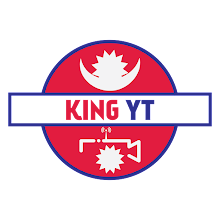Rich in breathtaking natural beauty and cultural heritage, Nepal's political landscape is as varied and complex as its geography. Nepali politics has changed dramatically over the years from a monarchy to a modern federal democratic republic. This article seeks to study Nepali politics, its historical background, key players, problems and possible solutions. Nepal's political history spans millennia, with kings ruling the kingdom until the dawn of the twentieth century. A monarchy ruled the country until a pro-democracy revolution in 1990 resulted in the formation of a multi-party democratic regime. However, the transition to democracy was not without its challenges, including periods of political instability and conflict.
The turn of the millennium ushered in a new chapter in Nepalese politics with the rise of the Maoist rebellion, which sought to overthrow the monarchy and establish a communist republic. The decade-long conflict claimed thousands of lives and left a deep scar on the nation's psyche. The guns did not fall silent until the Comprehensive Peace Agreement of 2006, paving the way for a peace process and the eventual overthrow of the monarchy in 2008. After the peace process, Nepal started working hard to create a new constitution to reflect the status of its newly established republic. After years of study and negotiations, a new constitution was adopted in 2015, ushering in a federal democratic republic. However, there are obstacles in the way of political stability and inclusive government. However, there are obstacles in the way of political stability and inclusive government.
Political parties form the cornerstone of Nepalese politics, representing various ideologies and interests. From the centrist Nepali Congress to the communist-leaning Nepal Communist Party (NCP), these parties compete for power and influence in the country's political landscape. However, factionalism within parties often leads to power struggles and hinders effective governance. Although the monarchy has been officially abolished, it still holds symbolic significance for some sections of Nepali society. The role of the monarchy in contemporary politics continues to be debated, with calls from some quarters for its restoration. Civil society, including non-governmental organizations (NGOs) and activist groups, plays an important role in shaping public opinion and advocating for democratic principles and social justice.
Nepal's geopolitical importance attracts the attention of regional powers such as India and China as well as international actors such as the United States and the European Union. The region's geopolitical dynamics often influence Nepal's political landscape, adding another layer of complexity to internal affairs. Ethnic and regional division is the biggest challenge facing Nepal. The country is a mosaic of ethnicities and cultures, and tensions often flare up along ethnic and regional lines. Ensuring inclusiveness and addressing the grievances of marginalized communities is paramount to promoting social cohesion and political stability.
Corruption is another widespread issue affecting Nepali politics, hindering development and reducing public trust in institutions. A culture of impunity surrounding corrupt practices undermines the rule of law and perpetuates inequality. Anti-corruption efforts should be intensified with a focus on promoting transparency and accountability at all levels of government. Institutional weakness is another major obstacle in Nepal's political development. Weak governance structures and ineffective implementation of laws undermine the functioning of democratic institutions. It is essential to strengthen these institutions and promote the rule of law to create an environment conducive to sustainable development.
Economic development has become an important challenge for Nepal when the country is plagued by widespread poverty, unemployment and underdevelopment. Investment in infrastructure, education, healthcare and agriculture needs to be prioritized to create economic growth and employment opportunities. Addressing the root causes of poverty and inequality is fundamental to building a more prosperous and equitable society.
Finally, Nepal's political landscape is full of countless challenges and opportunities. By embracing inclusiveness, strengthening institutions, controlling corruption, promoting sustainable development and promoting regional cooperation, Nepal can advance its political cycle and move forward on the path of progress and prosperity for all its citizens. Political leaders, civil society and international partners must work together to achieve these goals and build a better future for Nepal. Only through integrated efforts and collective action can Nepal fulfill its immense potential and become a beacon of democracy and development in this region.

















No comments:
Post a Comment